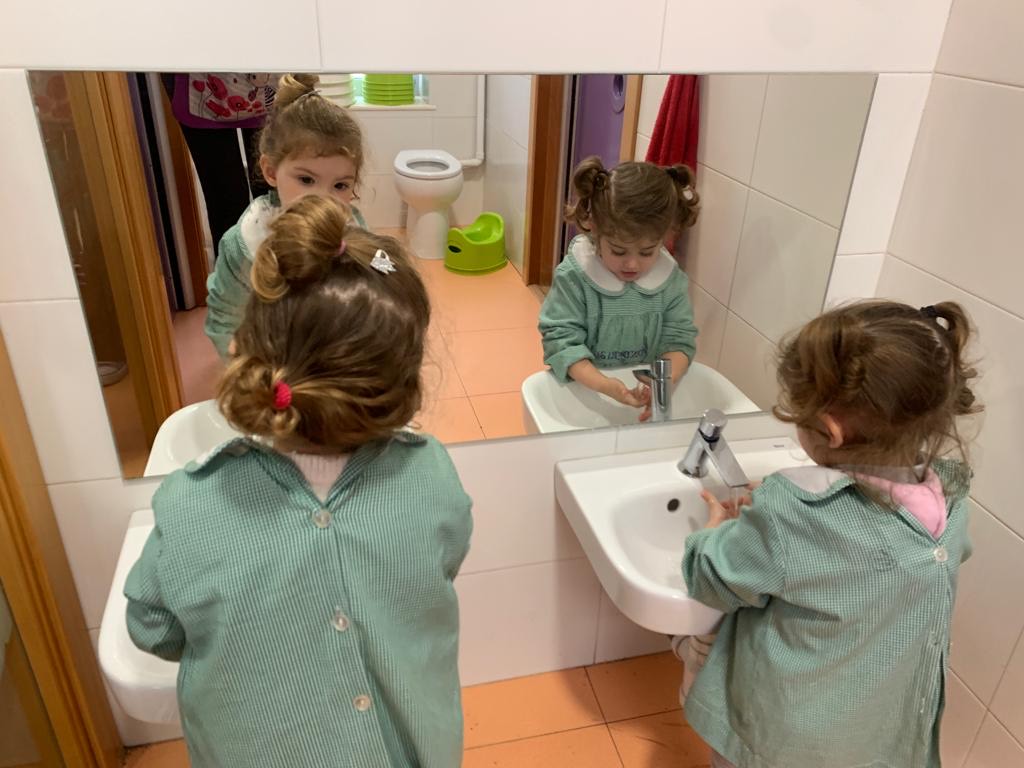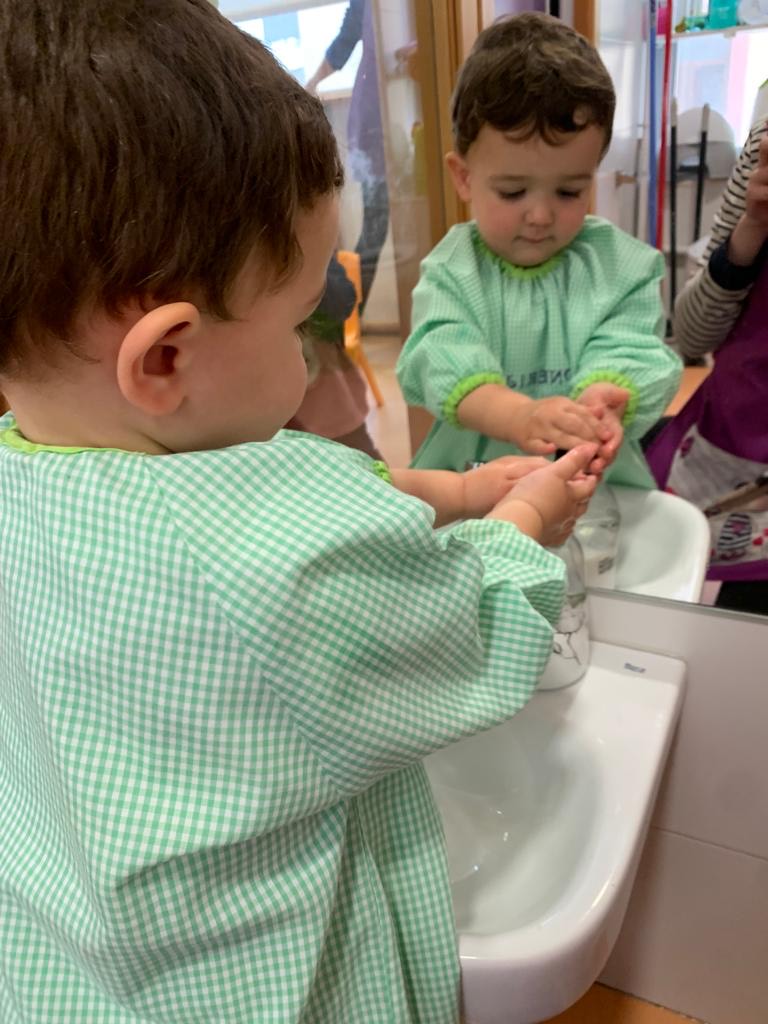It´s widely known that getting sick occurs more often in the winter months. The colder, wetter weather means we spend more time together indoors, thus leading to an increase in the spread of bacteria. With young children, it can seem like they are falling ill with one sickness after another during these months. Particularly in a childcare setting, it is difficult to avoid the transmission of bacteria and viruses. The spreading of germs and bacteria increases when children share close proximity, as well as toys and other objects with eachother. Poor hygiene habits at their young age also contributes to the spread of bacteria and viruses.
In this blog, we will discuss the most common illnesses spread in nursery schools and general advice given by professionals to slow the spread of these illnesses in children. We will also highlight what we at Wonderland are doing to reduce the spread of infection.

Studies suggest that children between 1 and 3 years develop an average of six to nine illnesses a year. Common illnesses in this age group include (but are not limited to):
While a child getting sick is a very difficult time and can be disruptive to their early education and socialisation, it is important to remember that getting sick is a part of growing up. Being introduced to different bacteria and viruses strengthens the immune system, so that when they are exposed to the bacteria and viruses again, the body has a better chance of fighting against them. It can be helpful to compare the immune system to a muscle- the more it’s worked the stronger it becomes! Additionally, a long term study conducted in the USA found that, while children in nursery schools get sick more often than children don’t attend an early childcare facility, the nursery school children get sick less often when they move on to elementary school. So, parents, there is a light at the end of the tunnell!


Nevertheless, there are certain steps we can take to boost the normal functioning of the immune system and avoid repeated sicknesses in young children:
Here at Wonderland, we focus on all of these measures on a daily basis. The children are given balanced, healthy meals and are offered water on a regular basis throughout the day. Physical activity is encouraged during playtime out on the patio. We also encorporate gross motor movement activities into our daily lesson plan when indoors. Naptime is focused on the little ones getting a restful sleep. Each child has their own hammock/bed, with calming music playing in the background. They are rocked to sleep if needed and a relaxing atmosphere is maintained. With all these measures, we endeavor to build and maintain healthy habits in each child.
As we’ve discussed, a healthy lifestyle is paramount to a healthy child. A clean environment with staff knowledgable on optimal hygiene practices is also vital in reducing the spread of bacteria. While it is impossible to fully prevent the spread of illness (no matter how much cleaning and disinfecting we do!), there are additional measures we can take to reduce the spread of bacteria. As child caregivers here in Wonderland, we are acutely aware of our responsibility as role models to ensure optimal hygiene practices are practiced daily. Demonstrating and helping the children participate in the use and proper disposal of tissues helps to not only prevent the spread of illnesses, but it will also encourage healthy habits that’ll last a lifetime. Additionally, we ensure that we wash our hands regularly and thoroughly, and enable the children to do the same.
The importance of handwashing cannot be underestimated. Studies have shown that 80% of transferable illnesses are spread through touch. Regular handwashing of both children and staff helps to reduce the spread of these illnesses. At Wonderland, we ensure that we wash our hands regularly, and especially:
Alcohol gels are also available to staff in every classroom as an additional measure. However, it’s important to remember that alcohol gel does not kill bacteria in some illnesses (such as the Norovirus/ the vomiting bug). They are also ineffective when the hands are visibly dirty, so regular handwashing remains the gold standard.
As previously highlighted, maintaining a clean environment at Wonderland is essential for reducing the spread of infection. After all, a hygienic Wonderland is a healthy Wonderland! These measures contribute to a clean, safe environment where the spread of illnesses is minimised. Here we ensure:


It goes without saying, but is important to highlight, that one of the most effective ways to reduce the spread of illness in a childcare setting is to keep your little one at home when they are sick. When a child is unwell or experiencing symptoms of illness, they should be kept at home until they have fully recovered. Indeed, at Wonderland, if a child has a high temperature or is unwell with diarrhoea, they must be 24hours fever /diarrhoea free before returning to Wonderland. An unwell child needs extra attention and rest that can only be achieved at home. Once they are eating, drinking, sleeping, playing and are back to themselves only then it is recommended they return to a childcare facility. In this way, the spread of the illness can be halted and other children are spared from the suffering of also experiencing that illness over and over.
To conclude, everyone has a part to play in helping to reduce the spread of illness in young children. Parents and childcarers must encourage healthy habits from a young age to give the little ones the best start in life. Additionally, if a child is sick then parents must allow adequate time to rest and recover at home. Childcare facilities, like Wonderland, must ensure a clean, hygienic environment so that the spread of infection is reduced.